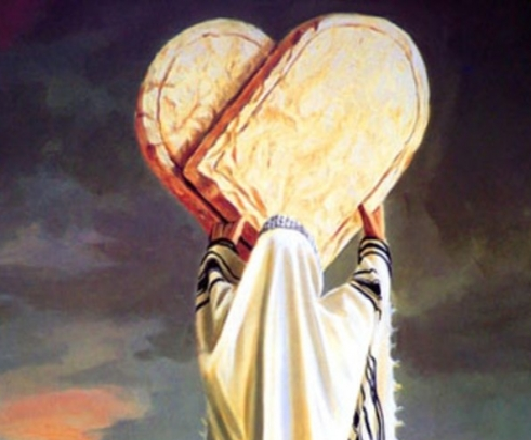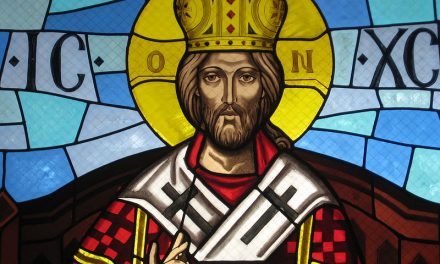Lectionary: 137
Numbers 11:25-29
Psalm 19:8-14
James 5:1-6
Mark 9:38-43,45,47-48
Blaise Pascal’s famous adage “the heart has its reasons which reason knows not” would sound very strange to one attuned to the Biblical concept of “the heart.” The term “heart” occurs over a thousand times in the Bible, and its meaning consistently refers to the center of an individual’s identity, comprising all the various dimensions of one’s personal agency: physical, emotional, intellectual, and spiritual. In the Biblical imagination, your heart is “you”; it is the integral core that makes you who you are. Like his near-contemporary Descartes, Pascal presumes a sharp distinction between calculating reason and emotion or intuition, while from the Biblical perspective, “the heart” encompasses both of these components. Of course the heart has reasons: the heart is the part of us that knows, feels, senses, and acts.
From this perspective it would also make little sense to oppose “the heart” and “the law.” One often presumes that the law—whether of God or the state—serves to keep the heart in check, so that one does not “follow one’s heart” at the expense of “doing one’s duty.” But it is one’s heart that allows one to act as a conscious agent, and therefore it is one’s heart that allows one to follow the law. I would go even further and say that the very notion of “the heart” presumes conscious action according to some law. “Out of the abundance of the heart the mouth speaks,” Jesus says in Matthew and Luke, echoing an idea found in several places in Psalms and Proverbs. The character of one’s words and deeds reflect the character of one’s thoughts and feelings, the underlying template or gestalt ordering one’s one’s agency. There is a “law” that explains why we do what we do; to name that “law” is to name one’s character.
Hence Philo describes Moses himself as a “living and reasonable law” even before God delivered the Law to him and to his people externally, through words (Life of Moses I.162). Providence ordered things such that Moses displayed in his own life and actions the ordinances of reason that would eventually find expression in the individual mitzvoth of Torah. This insight helps to explain what this week’s first reading might mean when its says that the Lord took “some of the spirit that was on Moses” and “bestowed it on the seventy elders” so that they prophesied (Num 11:25). The elders Eldad and Medad were not present at the tent of meeting when this transfer took place, but they found themselves prophesying in the camp anyway. Joshua took offense that these slackers should still receive the same gift given to the elders at the tent of meeting, and so he asks Moses to shut them up. “But Moses answered him, ‘Are you jealous for my sake? Would that all the people of the Lord were prophets! Would that the Lord might bestow his spirit on them all!’”
This statement of Moses is quite profound if we read it in light of Ezekiel 31, John 20:21-23, and Acts 2. In Ezekiel 31, the Lord promises to write the law directly upon the hearts of His people. At the end of John, Jesus breathes his Spirit into his disciples and tells them “as the Father sent me into the world, so now I send you.” And at Pentecost, the Holy Spirit comes upon all the followers of the Lord gathered in Jerusalem, giving them the power to do what Jesus did in the world. Yet all the way back in the early days of God’s chosen people, Moses intimates God’s desire to bestow His own Spirit upon everyone, so that everyone might serve as a vehicle of His wisdom and mercy in the world. Moses here expresses God’s own longing for the day when the “law” directing the hearts of every person is the same Law that directs the heart of God. “You shall be holy for I, the Lord God, am holy” we hear several times in the Torah. “Be perfect, even as you heavenly Father is perfect,” we hear Jesus say in the Sermon on the Mount.
As the reading from James and the Gospel for this week make abundantly clear, God does not care about the things that are merely attached to us: how many things we have, how much power we have accumulated, how many personal goals we have accomplished, or even how many limbs or eyes we end up having at the end of the day. God wants our hearts. God wants the core of who we are, and he wants all of it. God has no time to hear the “laws” of efficiency or success by which we regularly direct and justify our actions in pursuit of worthy ends at the expense of justice. God has no interest in hearing our explanations for why the “greater good” required us to lead a child or two into sin. Such calculations reveal a corrupt heart, and it is our hearts that God weighs in the end.
Factors such as communal membership or material success are contingent accidents; it is our essence that God cares about. That’s why both Moses and Jesus approve of those who display the power of God outside the “official channels” of mediation. That’s why Jesus said that it is better to be without limbs than to have given one’s heart over to the “law” of sin. For the heart has its reasons because the heart inevitably follows a law of one kind or another. As God’s people who received the very Breath of the Lord in Baptism and Chrismation, we are called to conform the laws of our hearts to those that order God’s own heart. We are called to be holy as He is holy, to be perfect as He is perfect. The rest of it can and will all burn away; what will be left is our heart: that integral core that makes us who we are. Let us pray that God’s grace will continue to refine our hearts so that when He looks upon them at the last day, He will see a clear reflection of His own heart looking back at Him.



